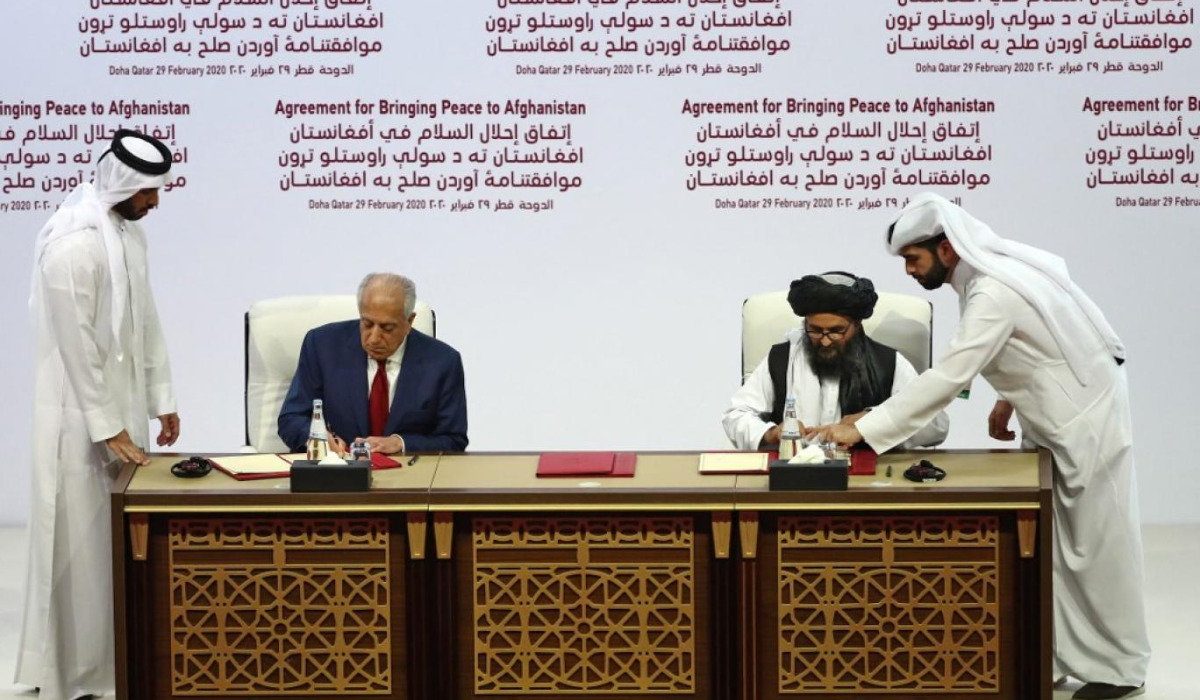The PA’s misplaced optimism
November 7, 2024

Palestinian Authority President Mahmoud Abbas (L) and US President Donald Trump shake hands before a meeting at the Palace Hotel during the 72nd United Nations General Assembly on 20 September, 2017, in New York

by Ramona Wadi
walzerscent

The return of Donald Trump as US president will undoubtedly evoke the memory of a string of unilateral concessions to Israel, ending with the Abraham Accords, that undoubtedly contributed to the current premeditated sense of oblivion towards the genocide in Gaza. We can also remember how the Palestinian Authority was shunned; the PLO office in Washington was closed down; and funds to the PA were cut. The PA, however, apparently has no memory of any of these abuses, hoping no doubt that it is seen as being diplomatic while trying to garner favour.
“We will remain steadfast in our commitment to peace, and we are confident that the United States will support, under your leadership, the legitimate aspirations of the Palestinian people,” wrote PA President Mahmoud Abbas in his congratulatory letter to Trump.
Being that confident can only be attributed to an attempt to claim some degree of political relevance.
Palestinians in Gaza are experiencing genocide and the occupied West Bank is far from free of Israel violence. In both areas, the US is funding the ethnic cleansing of the Palestinian people and has been doing so for decades. And yet you would not think so given the tone of Abbas’s message. His optimism it totally misplaced.
In April this year, Trump urged Israel to “finish what they started” in Gaza. The rhetoric, however, as is Trump’s style, was vague. “Get it over with, and get it over with fast, because we have to, you have to get back to normalcy and peace,” Trump said during an interview on the “Hugh Hewitt Show”. Peace after a genocide that the international community is wilfully ignoring and which the US is funding very deliberately? That can only mean a peace without Palestinians, and there is no normalcy about that, because Palestinians would have disappeared as a result of Israel’s internationally-supported genocide.
OPINION: Harris was Trumped by the price of eggs and milk
Just two months earlier, Trump’s son in law and former advisor Jared Kushner was dreaming about and advocating for luxury beach front properties in Gaza. Palestinians, he said, should be moved to the Naqab Desert and Egypt. He had also admitted that it was possible that Israel would not allow the forcibly displaced Palestinians to return to their homes in Gaza, a possibility that was asserted publicly as fact by the Israeli military during a media briefing on Tuesday night.
While Trump has stated that he will focus on domestic policies and bring an end to the wars, such a message is too simplistic.
Behind that tone lies decades of US foreign policy; diplomatic relations with Israel; funding Israel’s colonial enterprise and military; its Qualitative Military Edge; the unilateral concessions made to Israel by the Trump administration during his first presidency; and, of course, Kushner’s investment proposals. And let us not forget Kushner’s efforts to get UNRWA defunded and discredited during Trump’s tenure, as well as the attempts to alter the definition of a Palestinian refugee. Of course, the US excels in helping Israel create perpetual refugees out of Palestinians, but Kushner finds no contradiction in that, as long as Gaza becomes available as investment bait for luxury beachfront properties.
The PA might need to reconsider its positive stance. US presidents look after Israeli interests. That’s an undeniable fact, and is unlikely to alter. Palestinians have already been forcibly displaced from northern Gaza. How can Abbas express confidence in Palestinians achieving their “legitimate aspirations” when Trump’s previous record demonstrates otherwise, and the rhetoric so far still points towards genocide?
The views expressed in this article belong to the author and do not necessarily reflect the editorial policy of Middle East Monitor.










